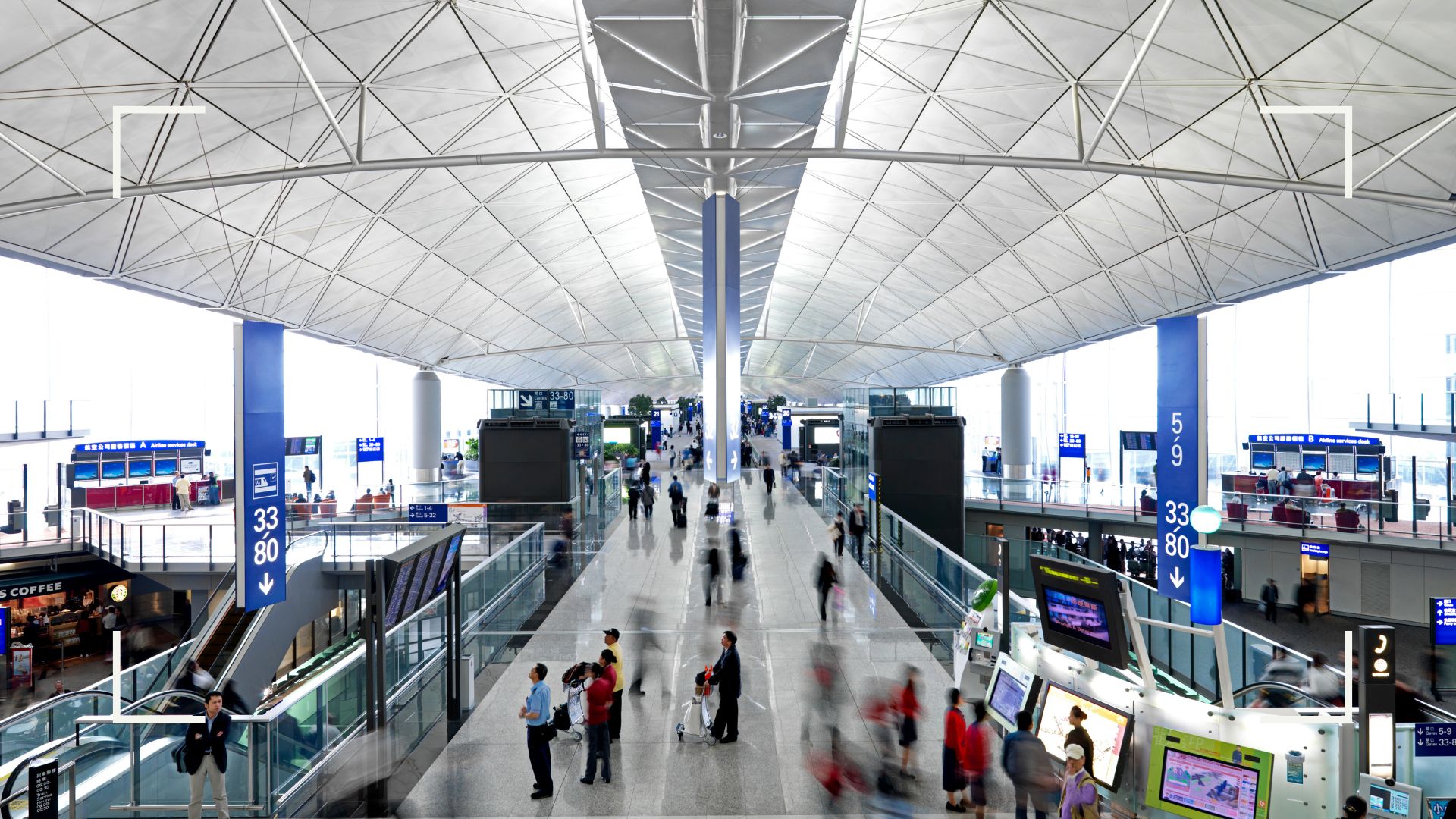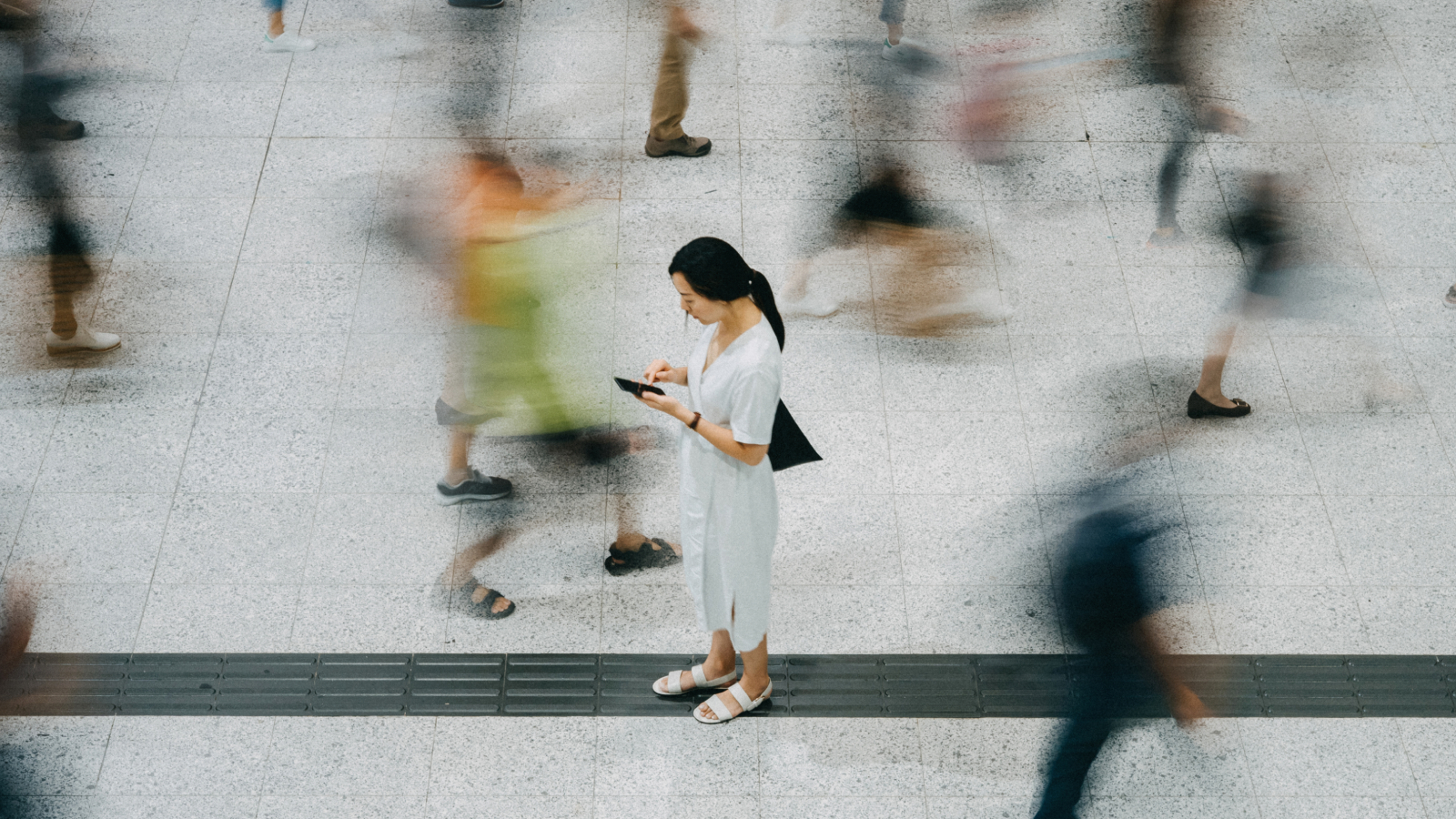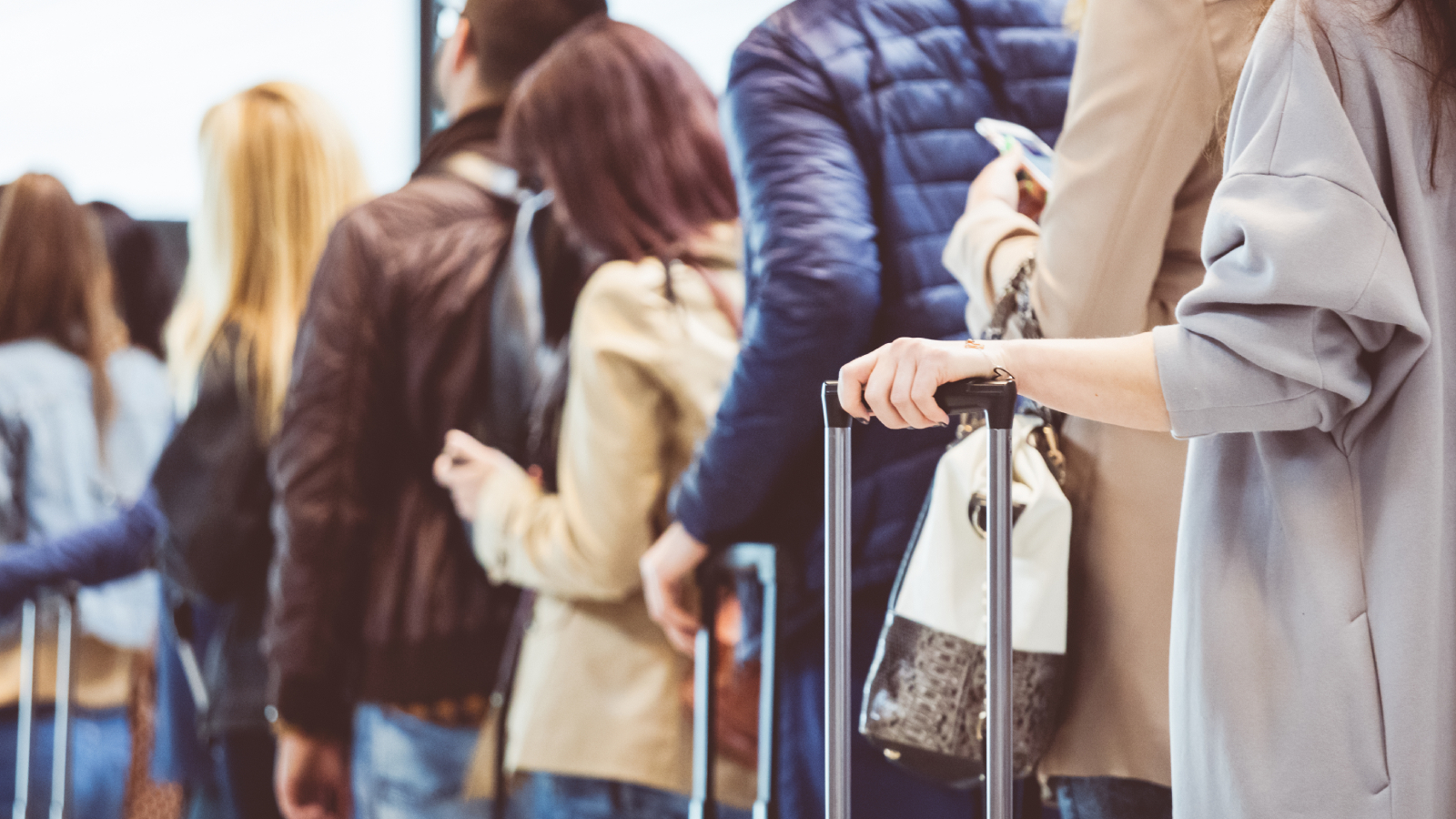How to overcome airport anxiety when feeling overwhelmed, according to experts
Airport anxiety is all to common - here's what to do when the panic starts rising


Airports aren't the most relaxing of places, we can all probably agree. But for some people, the mere thought of checking in for a flight or getting through airport security triggers airport anxiety.
Airport anxiety is often mild, but sometimes symptoms can be as severe as panic attacks. "When I book a holiday, I think it's the best idea ever," says w&h reader Julie, who has suffered from anxiety in airports for years. "As it gets closer to departure day, I wonder what on earth I was thinking - and the anxiety just builds and builds. I'm getting better, but it got so bad that at one point that I could have happily said 'I'm never going on holiday again'."
Airport anxiety is a recognized problem and can have devastating implications, says Rory James MacLaren-Jackson, a clinical hypnotherapist. "It is important to understand that ‘airport anxiety' is really just shorthand for what can be complex anxiety disorders, with particular elements and triggers unique to the individual," he says. MacLaren-Jackson has treated many patients with travel-related anxieties - and he stresses the importance of addressing anxiety by spotting the signs of stress, before it becomes too deep-rooted. "Low-level anxiety has the potential to grow as a problem, especially if you are unlucky enough to have a negative experience at an airport in the future. It is often this combination of existing anxiety, plus a bad experience, that can really lead to an escalation of the problem."
Why are airports so stressful?
"We can experience anxiety in airports for a variety of reasons," chartered clinical psychologist Dr Clair Burley explains. "It could be to do with a fear of flying, but it could also be about crowds of people, security or safety, sensory issues, like the loud noises, or even about a change of routine, or being somewhere new or unknown." If you're already suffering from stress or burnout, these conditions can be particularly triggering.
Triggers for airport anxiety:
- Fear of missing a flight
- Feeling claustrophobic in crowded and busy places
- Risk of terrorism - will I be safe?
- Fear of technology - have I checked myself in correctly online? How do I do self check-in at the airport?
- Fears surrounding having the right Covid-19 documentation
- Security - will the queue make me late? Will I be stopped and searched physically?
- Too many things to remember - have I packed everything I need?
For Julie, claustrophobia and lack of control trigger her anxiety. "If I can't find a way out of a situation, I get panicky. I'm away from everything that's familiar," she explains.
"The presence of crowds can make people anxious, or the feeling of being ‘stuck' in a certain area or in a long queue can set off the anxiety response," says MacLaren-Jackson. "A person may feel uncomfortable from the immediate environment, they start to feel the physical symptoms of anxiety, then they begin the unhelpful rumination of ‘what if' questions - what if I am ill, what if this is a panic attack, what if I have to leave the queue, what will people think? Once set off, this ‘fear of the fear' cycle can escalate very quickly into a full panic attack."
Feeling severely anxious in airports is more common than most people realize - it can strike anybody, at any time. "I have suffered with airport anxiety for most of my adult life - I don't know what triggered it," says Julie. "I feel trapped in airports. When you go through the gate, it's like going through a one-way door - there's no escape."
Sign up for the woman&home newsletter
Sign up to our free daily email for the latest royal and entertainment news, interesting opinion, expert advice on styling and beauty trends, and no-nonsense guides to the health and wellness questions you want answered.
What are the symptoms of airport anxiety?

The symptoms of airport anxiety look a lot like the symptoms of anxiety in general, but knowing what to look out for can help you tackle the situations before it potentially gets out of control.
For fearful flyer Hedi Pavelcova, her business takes her around the world on assignment, but she has suffered from airport anxiety and fear of flying for 11 years. "I don't sleep the night before a flight with terrible insomnia, and in the morning I have an upset stomach, I'm very stressed and moody, and I have cold sweats," she explained.
Common airport anxiety symptoms:
- Racing or negative thoughts
- Heart beating faster
- Feeling hot and sweaty
- Irritability
- Dizziness or feeling light headed
- Dry mouth
- Tension headaches
- Sick and nervous feeling in stomach
- Muscles feeling tense
- Breathing quicker and shallower
- Restlessness
- Needing the toilet more often
Is airport anxiety always linked to fear of flying?
Not necessarily - it can stem from lots of different factors. "Some of my clients that have come to see me for fear of flying, have been surprised to learn that it isn't the flying itself, it's more to do with the lead up of getting onto the flight," says Heather Hall, a cognitive hypnotherapist who helps her clients combat stress, anxiety, fear, depression, addictions and weight loss through her Harley Street clinic.
This is the case in Julie's experience, whose anxiety subsides once she's on the plane. "Once we've taken off, I'm much calmer. I don't have a problem with flying itself; you're being waited on, you don't have to do any work or washing up - what's not to love?"
How to handle an airport anxiety attack
"The best way to handle an anxiety attack is to acknowledge that you are having a form of a panic attack - rather than worrying whether it is a physical health issue [like a heart problem or breathing difficulties that can feel very similar] - and regulate your breathing," MacLaren-Jackson explains. "You can do with by gently breathing more slowly and deeply, in through the nose and out through the mouth."
"Some people find it helpful to count whilst they're doing this, others find it helpful to close their eyes," Dr Burley explains. Try to access feelings of compassion and soothing; it helps if you have practiced this beforehand. Some people do this through imagining a caring figure, or a calm safe place. In addition, it can be helpful to have someone supportive with you, reassuring you that you are okay, and that they are there with you."
It's important learn how to deal with stress better in the long term too, to keep airport anxiety under control.
How do you relax at an airport?

We asked the experts how to overcome their feelings of unease and calm airport anxiety.
1. Get to the airport early
"The airlines recommend two hours before your flight time, but I would suggest three hours if you suffer from anxiety, especially for long haul flights. This allows plenty of time for check-in and going through security, as queues can be unpredictable," therapist Hall suggests.
2. Don't hide your feelings:
"I encourage my clients to acknowledge their anxious feelings, but to actively not attribute any meaning to them," MacLaren-Jackson explains. "Instead, simply remind yourself that your body's ‘alert system' has been accidentally tripped, for example, by queuing for airport security and that, because this is a mistake, the feeling will soon pass. By understanding the mechanics of anxiety and not attaching meaning to any particular feeling this can go a long way to short-circuiting the potential cycle of anxiety and panic."
3. Control your breathing
Hall reiterates the importance of learning how to breathe better in moments of stress. "If you can feel the anxiety rising, a great tool I teach my clients is 7:11 breathing. Breathing into your lower belly for a count of seven, and breathing out for 11. This can be done anywhere, so even if you are standing in a queue surrounded by strangers, you can use this technique and no one will know. It can relax your body in a matter of minutes," she suggests.
4. Have faith in airport processes
While airport queues can be frustrating, strict security measures should help give you some peace of mind. Hall explains, "Remind yourself that although the rules and regulations at airports can be very overwhelming, they are actually put in place to keep you and everyone else safe. That's a good thing, isn't it?"
6. Cut down on caffeine before the flight
Caffeine can be a hinderance when it comes to easing anxiety, so you may want to think twice about that morning coffee if heading to the airport. Hall says, "Caffeine is a stimulant and actually produces the same responses we have when we sense danger. So if you are already stressed or feeling anxious, drinking something with caffeine in it is like adding fuel to a fire, making your body feel even more stressed or anxious."
7, Have some counselling before the trip
If symptoms persist and become hard to control, you may want to seek professional help. "Hypnotherapy is very effective way at eliminating anxiety in many different situations. By accessing your unconscious mind we can make those changes, enabling you to feel more relaxed, confident and have more self-belief, instead of feeling fear and worry. You will probably only need a few sessions," explains Hall.
Lauren is the former Deputy Digital Editor at woman&home and became a journalist mainly because she enjoys being nosy. With a background in features journalism, Lauren worked on the woman&home brand for four years before going freelance. Before woman&home Lauren worked across a variety of women's lifestyle titles, including GoodTo, Woman's Own, and Woman magazine.
-
 Cat Deeley's simple approach to self-care makes it so easy to feel good every single day
Cat Deeley's simple approach to self-care makes it so easy to feel good every single dayNo matter how little free time you might have
By Charlie Elizabeth Culverhouse Published
-
 What is ‘tile drenching’ and why is it the biggest design trend of 2025?
What is ‘tile drenching’ and why is it the biggest design trend of 2025?Expert insight and guidance on ways to bring this popular trend into your home, no matter your style
By Natasha Brinsmead Published